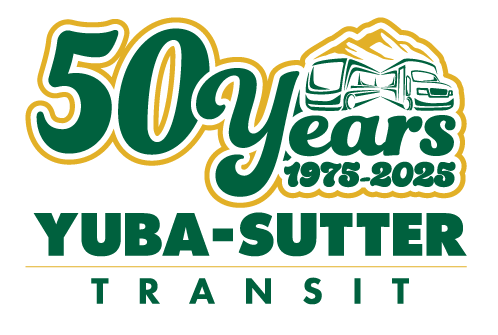Administration and Finance
Yuba-Sutter Transit is governed by a Board of Directors that is composed of two elected representatives from each of the four member jurisdictions. The Authority operates with a five-person staff consisting of an Executive Director; two Program Managers (Finance & Administration and Planning & Marketing); a Program Analyst; and an Administrative Assistant. Since 1988, Yuba-Sutter Transit’s staff has also served as contract administrative staff to the Regional Waste Management Authority concurrent with their transit duties. Both agencies have realized reduced administrative overhead expenses, but this shared staffing relationship is ending in FY 2023 as the RWMA is now transitioning to direct staffing. In addition to this transition, Yuba-Sutter Transit will soon be actively seeking a replacement Executive Director for the first time in 36 years as the long-time incumbent expects to retire by the end of June 2023 after nearly 44 years of public service.
In the last full fiscal year before the pandemic, Yuba-Sutter Transit's FY 2019 operating expenses were just under $7.3 million with nearly 75 percent accounted for in direct payments to the service contractor and another 15 percent in fuel and other direct operating expenses. For the same fiscal year, the operating revenue mix was about 29 percent federal (Federal Transit Administration); 51 percent state and local (Transportation Development Act); 15 percent passenger fares; and 5 percent miscellaneous income from special state grants, advertising, interest, and contract service payments. The capital budget varies substantially from year to year (from less that $1 million to over $8 million in recent years) with funding derived from a mix of federal, state, and local sources depending on the project.
The COVID-19 pandemic has since significantly impacted operating expenses and revenues alike due to increased pandemic related expenses; reduced operating hours and fare revenues; and the availablility of new federal transit funds for COVID relief. The FY 2023 operating budget of $8.8 million is funded through a revenue mix of about 27 percent federal; 60 percent state and local; 9 percent passenger fares; and 4 percent miscellaneous income.
